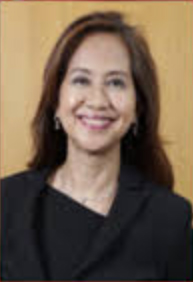Spanish and Philippine Law Archive
Este sitio web se presenta en el marco de un proyecto Erasmus + K107 entre las Universidades de Málaga, Universidad Ateneo de Manila y Universidad de Filipinas.
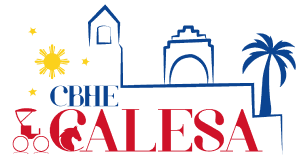 | 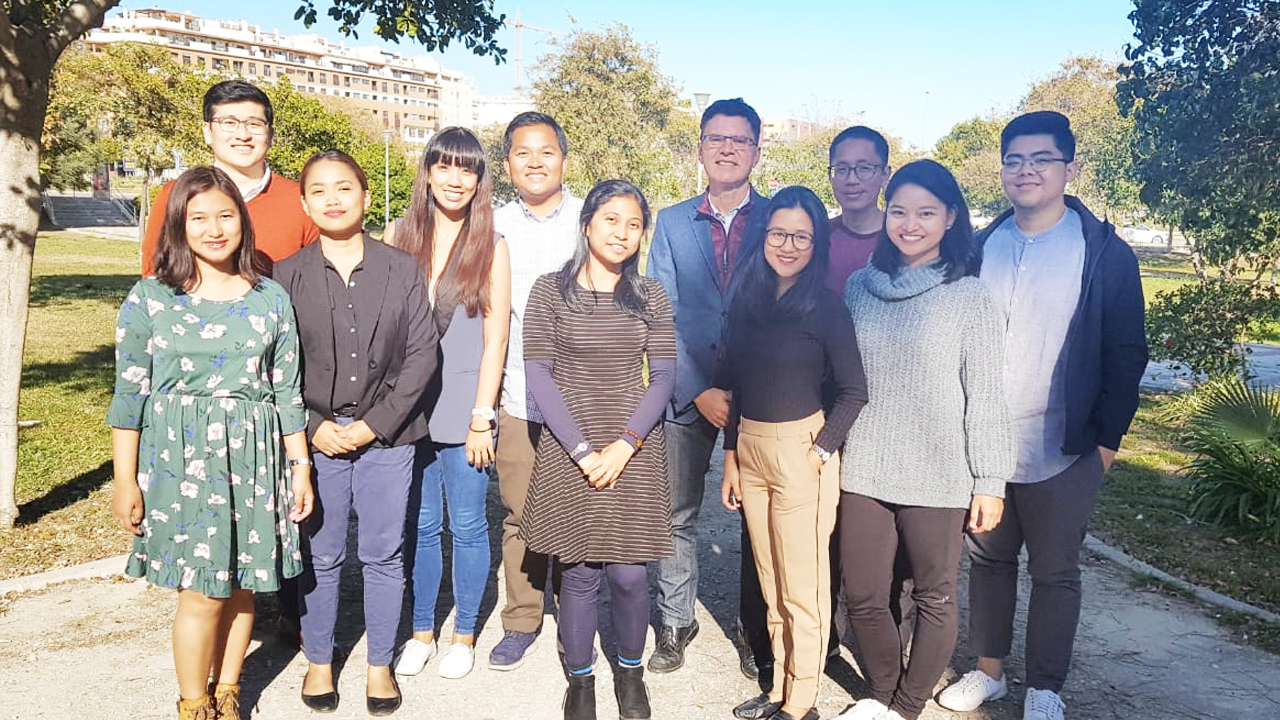 |
Proyecto Erasmus+ CBHE CALESAThe CALESA project is funded by the European Commission as part of the Eramus + Programme, under its Key Action 2, which supports Capacity Building for Higher Education (CBHE) projects. CBHE actions' aim is to improve, develop and modernize higher education systems and to support cooperation of Partner Countries across different regions of the world such as Asia, mainly through university cooperation projects. This project focuses its action in the Philippines in the area of Law. | Estudiantes filipinos en la Facultad de Derecho de la Universidad de MálagaDurante este semestre 8 estudiantes filipinos asisten a clases en nuestra Facultad de Derecho. Además, dos profesores filipinos permanecen todo el curso en Málaga para seguir el programa de Doctorado y preparar su tesis doctoral. La mitad de ellos proceden de la Universidad de Filipinas y la otra mitad de la Universidad Ateneo de Manila. Esto es gracias al apoyo financiero del Programa Erasmus K-107. |
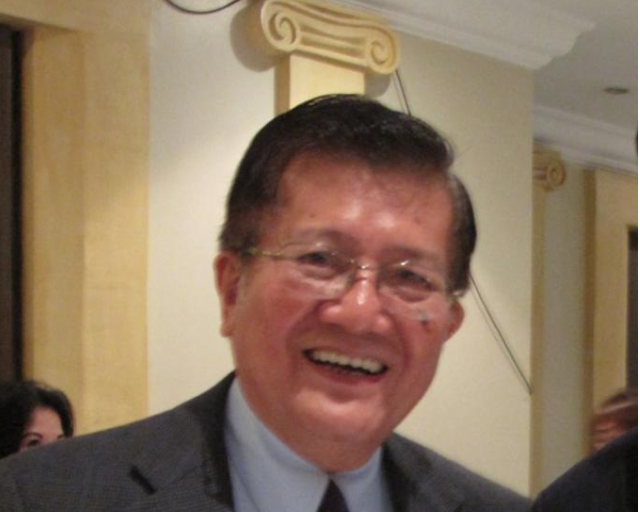 | Tengo el privilegio de dar la bienvenida a todos los interesados en los estudios de Derecho Español y Filipino a esta página web de la Universidad de Málaga. Esperamos que esta iniciativa de la Universidad sirva como una instalación vital y una puerta abierta para el intercambio de información, materiales, puntos de vista, opiniones y propuestas sobre todos y cada uno de los temas relevantes para los estudios de derecho Español y Filipino. Al mismo tiempo, esta puede ser una magnífica oportunidad para proporcionar un foro que sirva de sitio interactivo donde investigadores y académicos españoles y filipinos puedan compartir estudios sobre campos de interés común en derecho civil así como en otras áreas de la ciencia jurídica: constitucional, comercial, penal, procesal, fiscal, laboral, derecho internacional, etc. El derecho español y el filipino comparten más de tres siglos de historia. Somos más parecidos de lo que pensamos. Después de que los acontecimientos políticos del siglo pasado han provocado una relajación de los lazos que nos unen, ha llegado el momento -gracias a nuestra nueva lengua inglesa y a la espléndida iniciativa de la Universidad de Málaga- de reavivar y fortalecer nuestros lazos, para nuestro beneficio mutuo y el fomento del conocimiento y la erudición. D. Rubén F. Balane. University of the Philippines, Ateneo de Manila University. University of Santo Tomás |
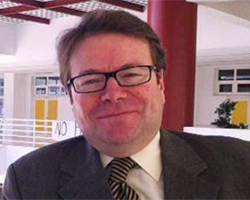 | La magnífica experiencia acumulada durante los tres primeros Congresos de Derecho Hispano-Filipino nos ha llevado no sólo a propiciar el cuarto de ellos, confiado a la Universidad Ateneo de Manila, sino a articular un instrumento que nos permita mantener un contacto permanente y favorecer las relaciones aun en la distancia, mediante la creación de este Archivo que quiere compendiar no sólo nuestra historia, sino otras aportaciones científicas recientes y actuales de carácter legislativo, doctrinal y jurisprudencial. Pretendemos así brindar a todos los interesados la oportunidad de difundir sus aportaciones y favorecer la comunicación científica entre los juristas españoles y filipinos. D. Juan José Hinojosa Torralvo. Decano de la Facultad de Derecho de la Universidad de Málaga |
Hay mucho español en nosotros los filipinos. En nuestro idioma, religión, actitudes, ascendencia. Nos encanta la paella y el cuchinillo, llamamos a todos los mestizos caucásicos interraciales, añadimos "María" al nombre de todas las demás niñas y sin esfuerzo decimos gracias y hasta la vista. Y estoy seguro de que nosotros, como pueblo, somos más ricos por ello. Ciento veinte años después del final de los 333 años de dominio español en Filipinas, los españoles y filipinos siguen mostrando interés unos por otros, esta vez a través del intercambio de archivos, hallazgos históricos y perspectivas. Parece una asociación natural que estos dos pueblos renueven las relaciones que han nacido de la historia a través de la investigación y la interacción. Este sitio web proporciona una plataforma para los intercambios escolares que pertenecen a nuestro pasado como naciones y pueblos entrelazados. Aquí, podemos acceder a nuestros hallazgos sobre la historia y la Filosofía del Derecho y, haciendo eso, esperamos ser capaces de entender más profundamente el Derecho Hispano-Filipino en su impacto en la transformación social. Bienvenidos a esta página web. Fides C. Cordero-Tan, Decana de la University of the Philippines College of Law.
|
Con los diversos congresos científicos internacionales anuales sobre Derecho Español y Filipino celebrados con éxito durante los últimos tres años y los acuerdos firmes sobre programas de movilidad que implican el intercambio de estudiantes y profesores ya en marcha, el camino a seguir para la colaboración y la cooperación entre la Universidad de Málaga, el Ateneo de Manila y la Universidad de Filipinas bajo la estructura del Proyecto Erasmus+ K107 es claro. Este Archivo complementa estos esfuerzos existentes para establecer una estrecha alianza entre las facultades de derecho de nuestras instituciones de educación superior en torno a nuestros objetivos e intereses coincidentes. De hecho, tenemos la suerte de que la tecnología actual nos permite estar al alcance inmediato de los pensamientos, las experiencias, los conocimientos, la información y la buena voluntad de cada uno al instante y a petición del otro, sin las propiedades restrictivas de las solicitudes de visado, el tiempo de vuelo, las presentaciones en conferencias y la presencia física. Sin duda, el futuro para avanzar y enriquecer nuestra alianza académica es ahora ilimitado. Animamos a todos a que aprovechen este Archivo para contribuir con contenido sobre áreas relevantes de la ley Española y Filipina, la jurisprudencia y el desarrollo que todos los miembros de nuestras comunidades académicas puedan hojear, leer, reaccionar y usar como trampolín para interacciones perspicaces y edificantes. Jose Maria G. Hofileña, Decano del Ateneo de Manila University School of Law.
|
|
Si desea aportar alguna información o documento interesante para colgar en este archivo, por favor diríjase a: jmdetorres@uma.es |

